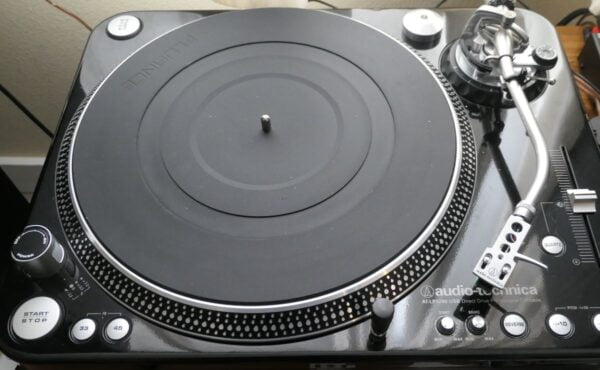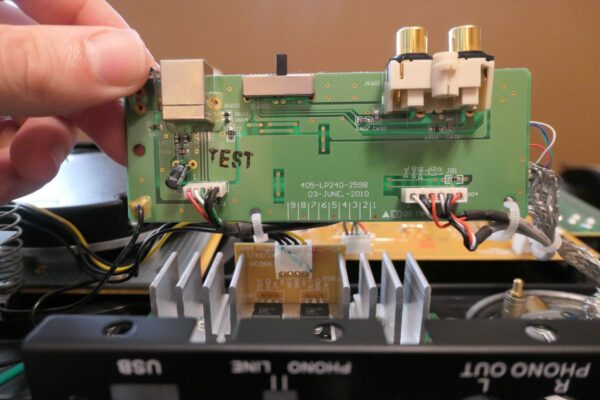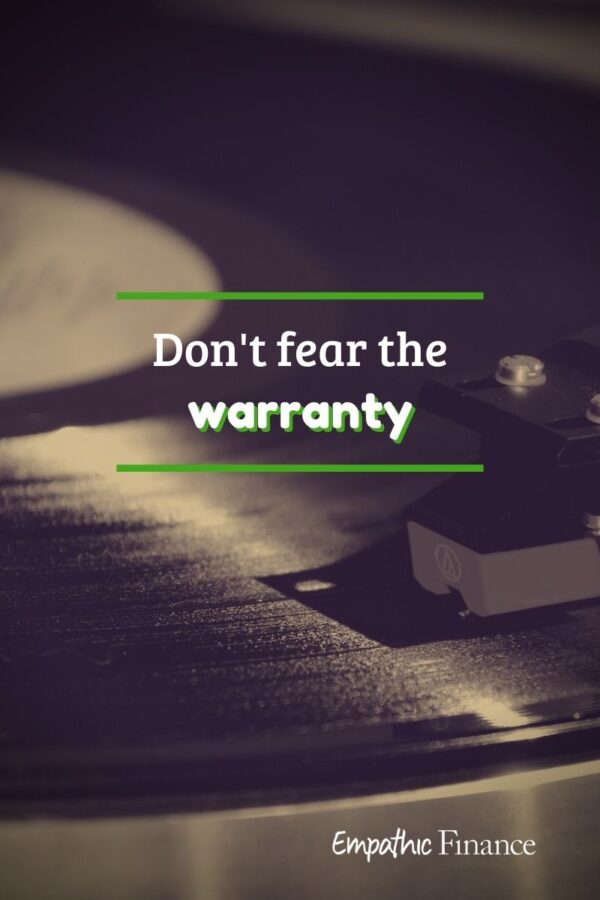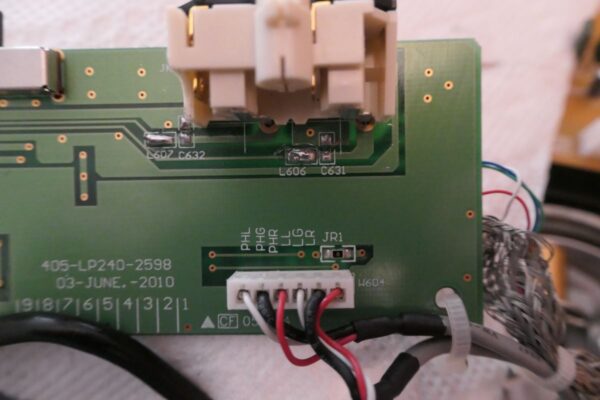You are probably never going to take advantage what the manufacturers offer, so don’t be afraid to void your warranties.
My turntable has become a treasured item in my home, and especially during the pandemic, playing records has definitely been a big part of my self-care.

My current turntable, the Audio Technica AT-LP1240, has a built-in phono preamp, but if you want to use an external one, there’s a bit of a snag: the audio output is worse. This is due to an in-line LC circuit in the output stage that causes the upper frequencies to be attenuated.

How do you fix that? You mod it, either through rewiring, or, as I did, literally removing the surface mount components with a soldering iron.
Doing a bunch of research before I did this, there was a lot of talk on online forums about whether it was worth it, because of how it would void the warranty.
This was yet another reminder of how people live in fear of warranties. It’s a low-grade fear, admittedly, but one that goes unchallenged.
And it’s time to challenge it. Because, in pretty much all cases, you’re never going to use that warranty anyway.

Table of Contents
Extended warranties
To get this out of the way, I’m not talking about extended warranties here. Extended warranties are add-ons to a purchase, often through the retailer, and you pay for them.
As far as I can tell, these are never a good idea. These purchases are the equivalent of the candy aisle in the supermarket, trying to tempt you when you’ve already got your wallet out.
You’re not likely to use them, and if you do, you aren’t going to save any more than you paid for the extended warranty in the first place.
If you don’t believe me, take the money you would have put into an extended warranty and place it in a savings account, using it only to pay for repairs. You’ll never empty that account.
Manufacturer warranties
I’m talking about the warranties that manufacturers add on to their products for free. Usually capped at “1 year”, but sometimes much longer (10-20 years for mattresses or carpets, say) these protect against defects.
Everything I buy seems to have something like this. Every time I buy a high-quality product from Amazon from TOUYOU, SEQUIT, AQUVAA, QUEEZE, or any of the other totally-not-shell-companies on Amazon, there’s not only a card saying “happy? tell us!” but there’s often a warranty card in there too.
For the first year, if ever your three pack of 1lb propane tank brass caps fails, then you definitely can get that money back.
Obviously this sort of thing is irrelevant when buying on Amazon, because they will effectively let you return anything you want.
So what about more traditional objects like toaster ovens or chairs?
I’ve got to give it to you straight, here: you’re not going to use the warranty. And if you bother trying, you have zero assurance that the company is going to pay.
You see, warranties are like rebates: easy to offer, but made so difficult to redeem on purpose so that companies won’t have to pay out.
Sure you can try to redeem the warranty, assuming that your particular brand of defect meets the precise definitions encoded into the warranty, but there’s as much chance that it won’t apply, and the burden of proof is on you.
More expensive items
What about more expensive items like carpets, ones with a longer lifespan?
My partner once bought carpet with a fairly good warranty on it, specially covering pets and the horrible messes those cute little devils make as a matter of routine.
But the thing of it is that any of the pet stain cleaners that actually work were expressly forbidden by the warranty. Pretty much all you could do was use soap and water, which anyone who’s dealt with an ill kitty will tell you immediately is a joke.
So, either let your cat run rampant over your carpet and keep your framed copy of your warranty for the next decade, or live in a clean place and ditch the warranty.
I’m not saying to preemptively do things to your products that void your warranty if you have no interest in doing it. I’m just saying that there is no compelling argument for not taking matters into your own hands for repair and maintenance if you want to, just because of the fear that at some point in the future, you’ll want to utilize your warranty but not be able to.
When you compare a certain good with a potential good, certainty wins out. (At least when all things are equal.)
So, yeah, I threw out the warranty on my turntable. (That’s assuming I had one; I bought it used, which is an even greater trick.)

And now, my records sound even better.
And when you contemplate doing something but hesitate when you think about your warranty; ask yourself: are you really going to try to collect?


